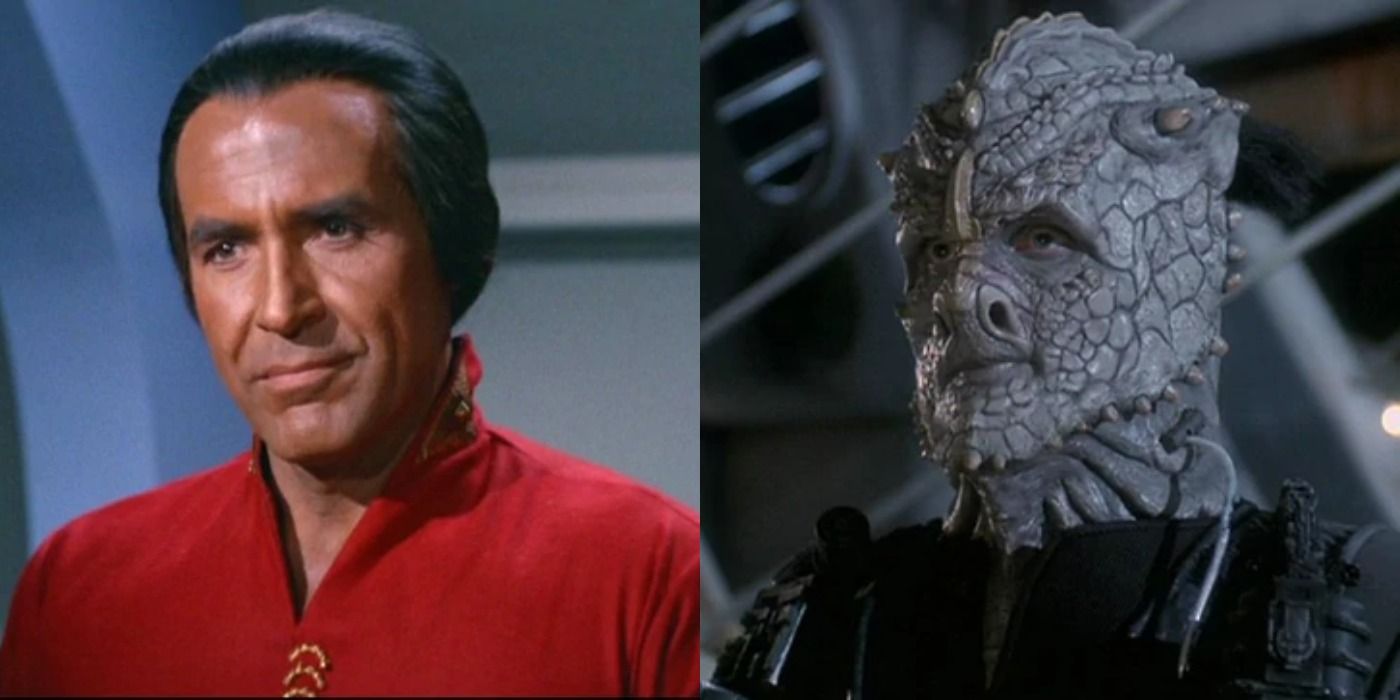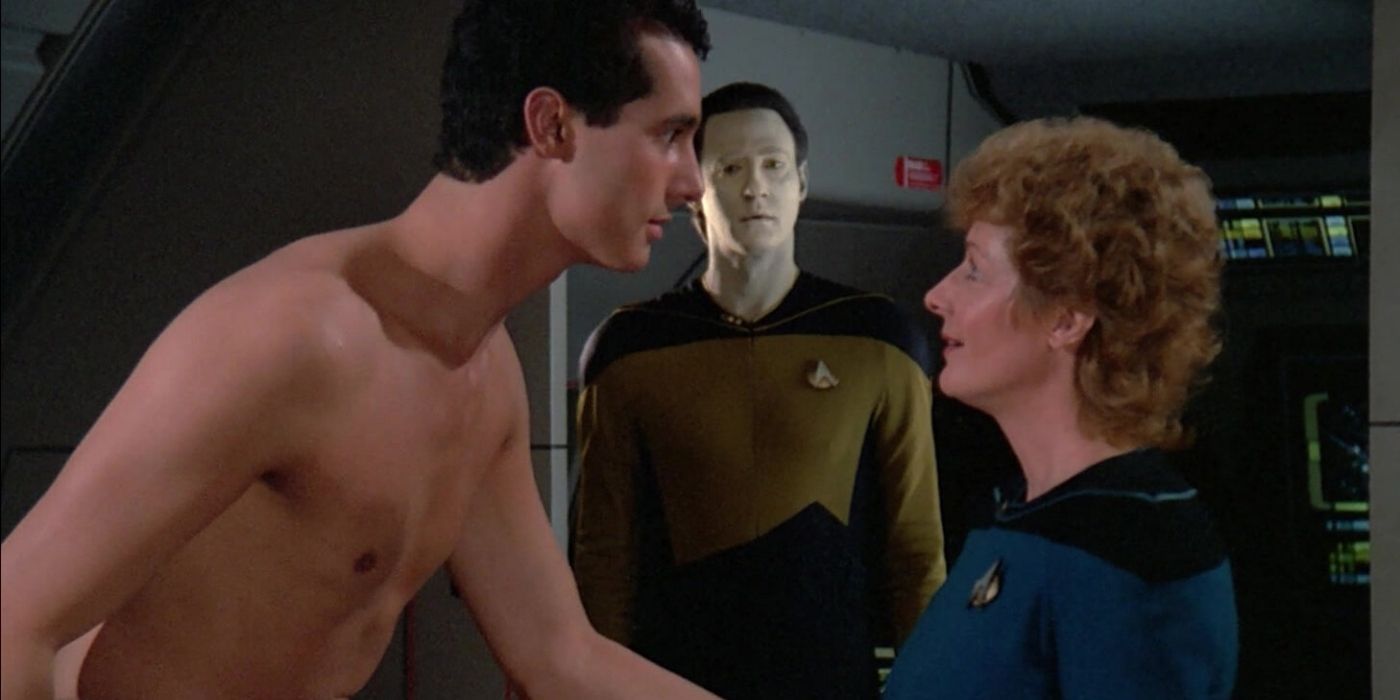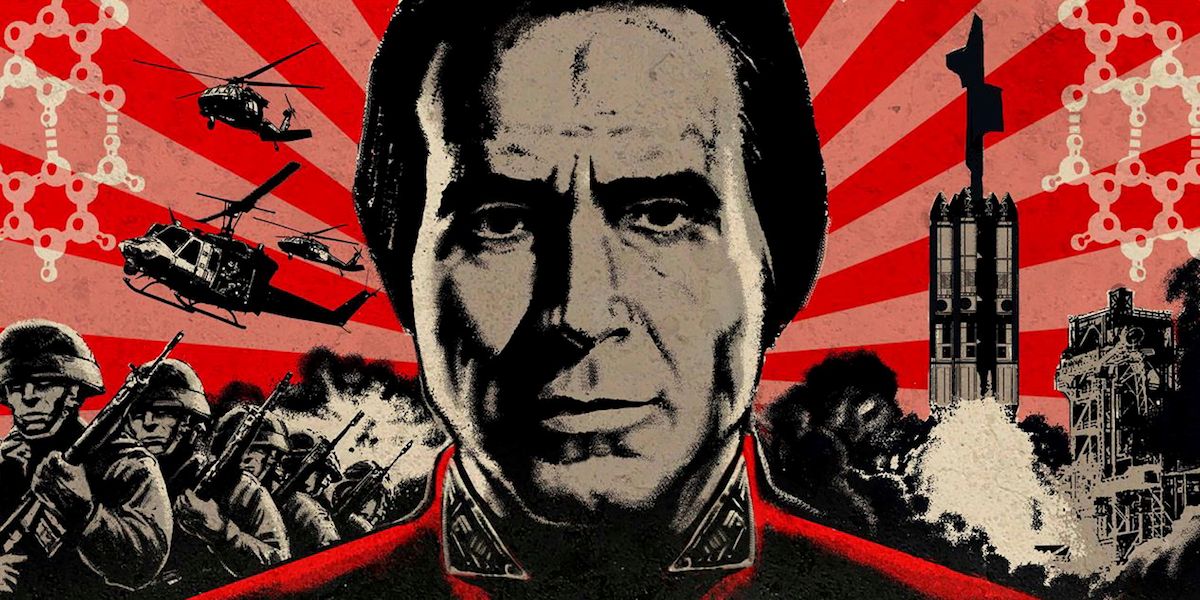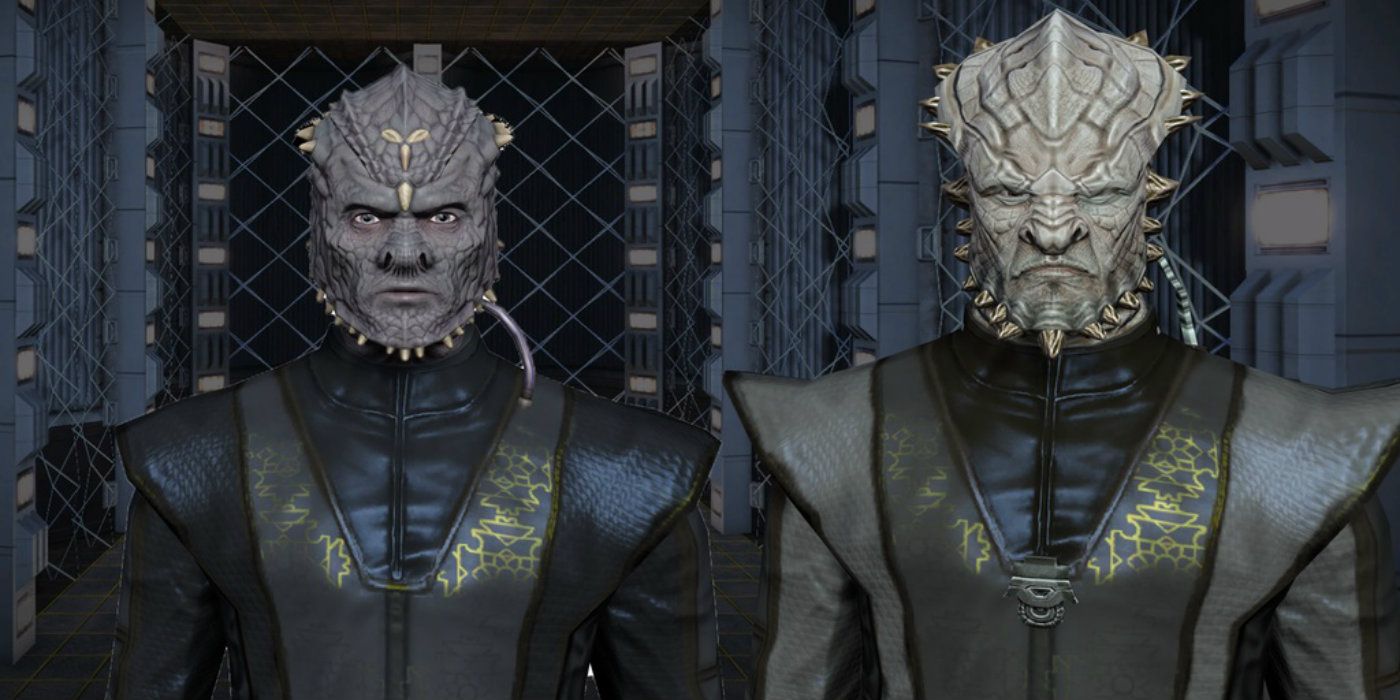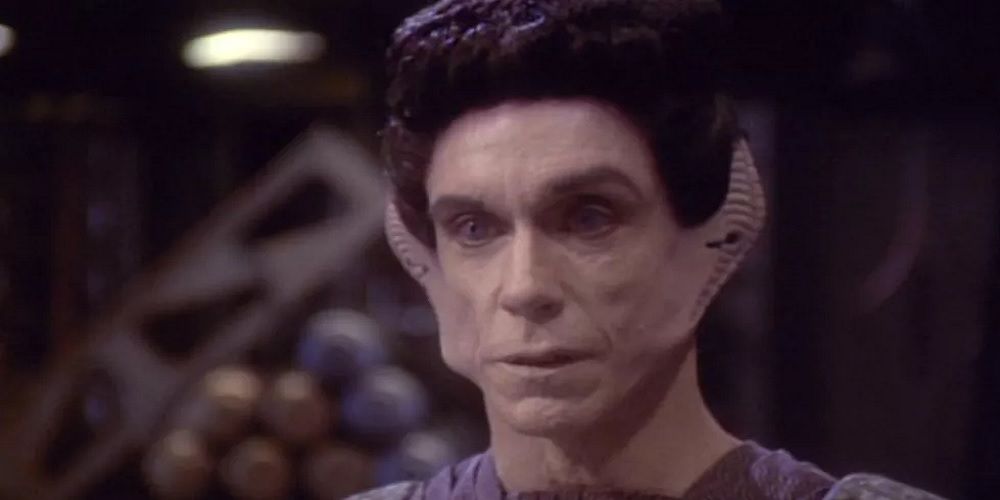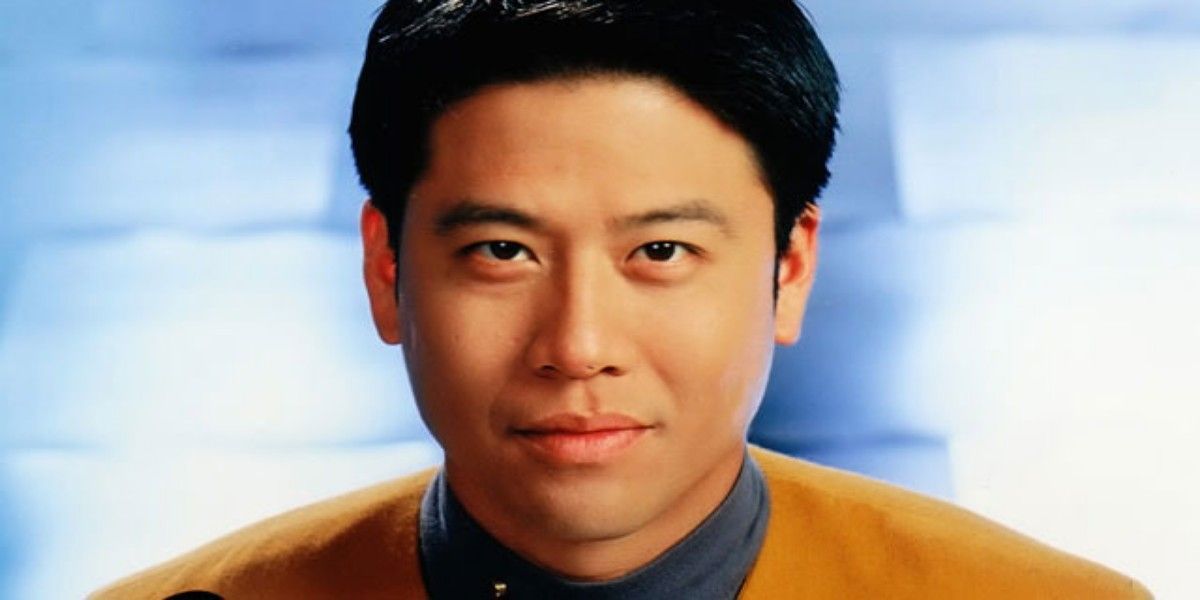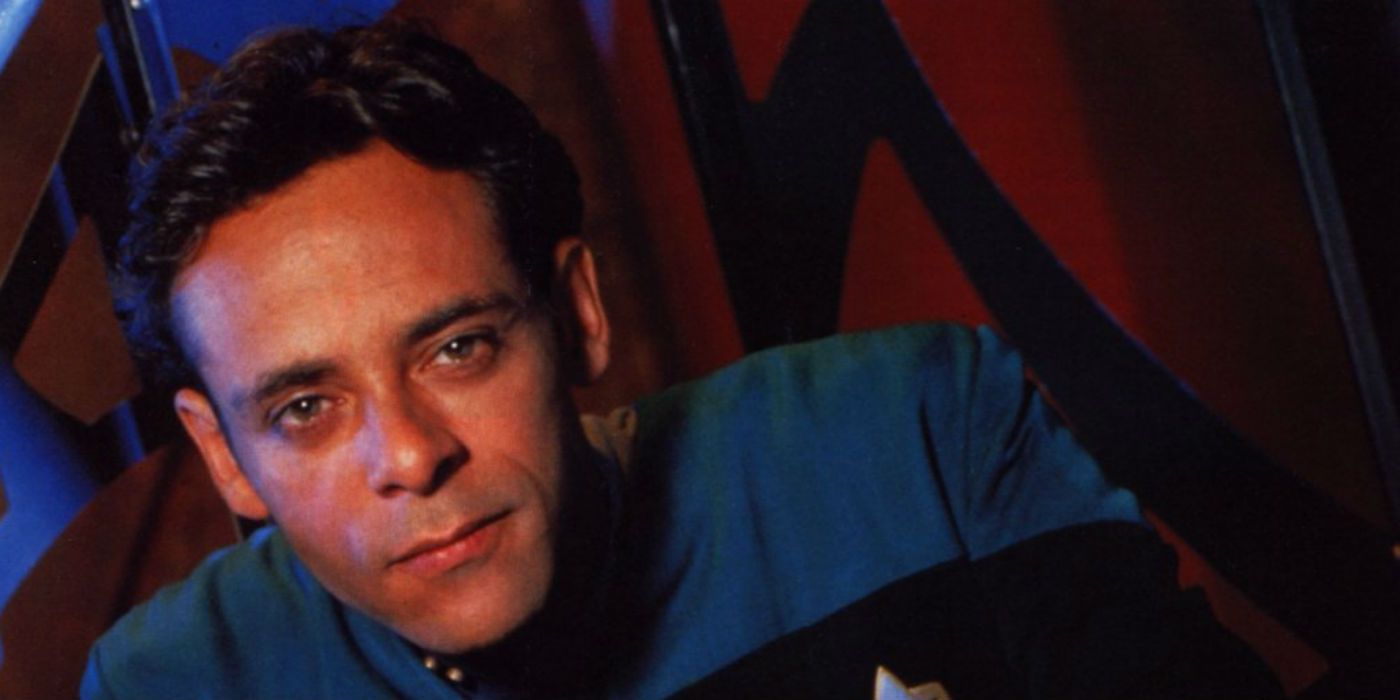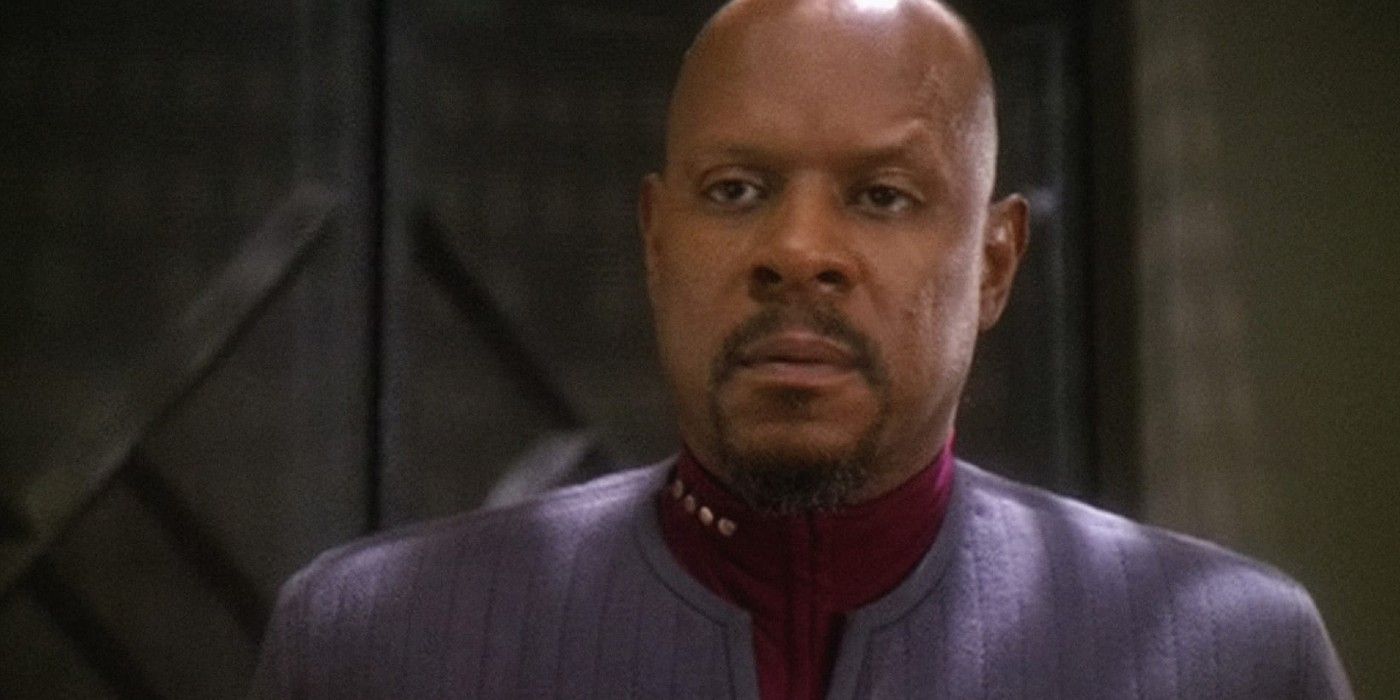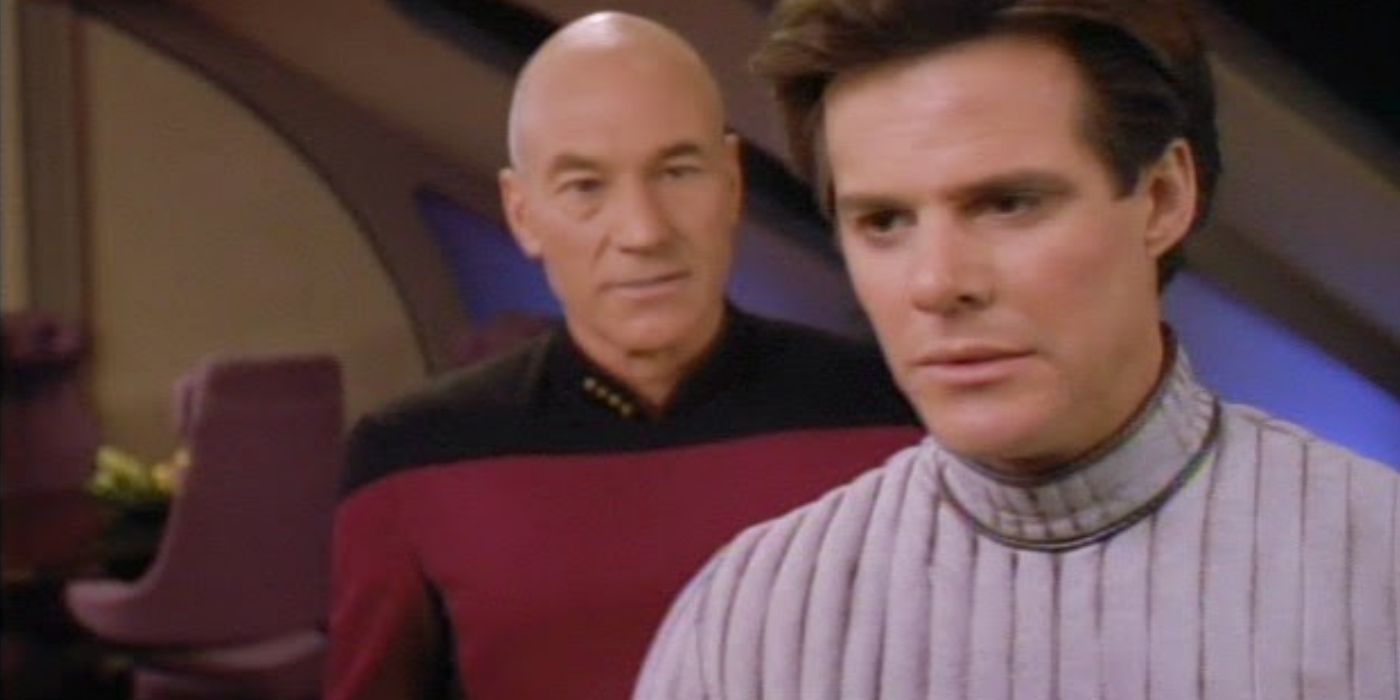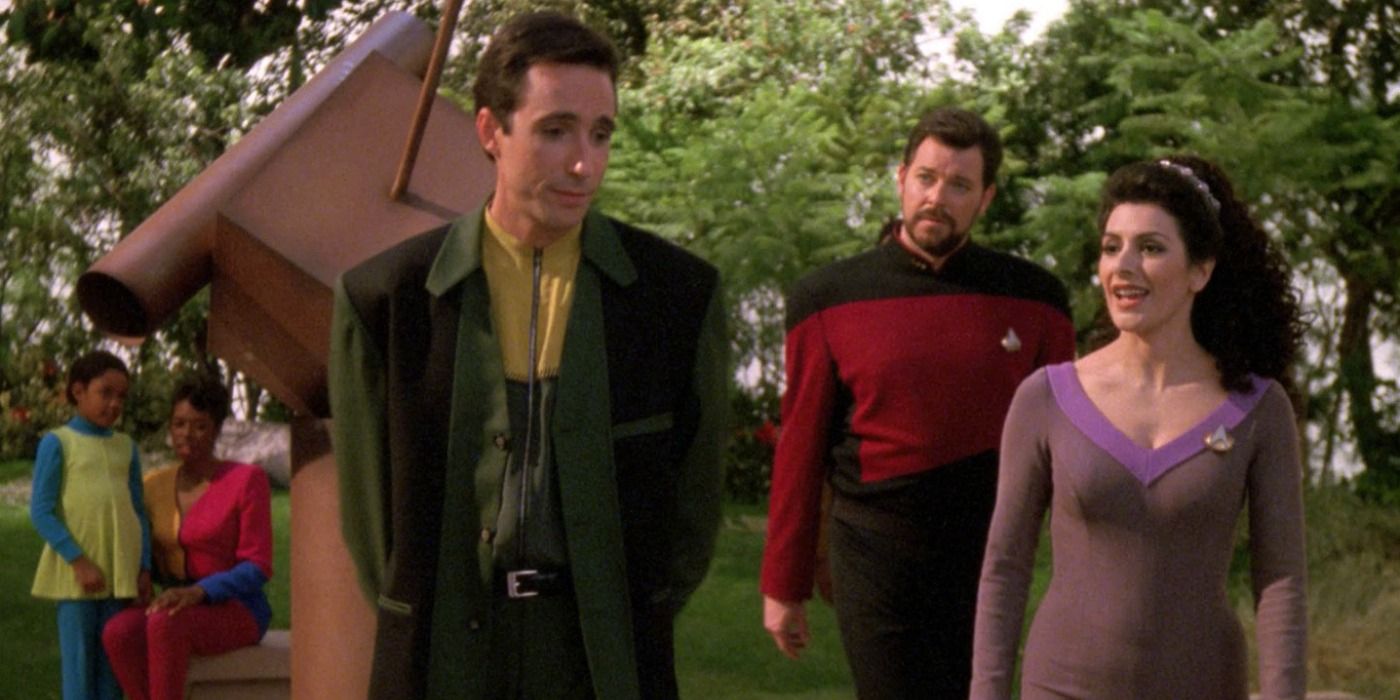In the latest episode of Strange New Worlds, it is revealed that first officer Una Chin-Riley (Rebecca Romijn) is an Illyrian, a species of alien that is banned from joining the Federation due to their practice of genetic engineering.
Along with security officer La'an Noonien-Singh, who is related to the infamous Khan Noonien-Singh, SNW is setting up genetics as its allegory to modern discrimination. So it is worth exploring how Star Trek has covered genetic manipulation during its nearly 60-year history.
Unnatural Selection (Star Trek: The Next Generation. Season 2, Episode 7)
The Enterprise encounters a ship full of people who have seemingly all died of old age. It's revealed they were exposed to genetically engineered children, whose hyperactive immune system causes all who come in contact with them to age very quickly.
The scientists that helped create these children weren't evil. This episode serves as a warning to humanity, that trying to "cheat" evolution will never work. One of the main points of Star Trek is that a bright, prosperous future is reachable, but it may not be easy. Genetic engineering is shown as a shortcut that even with the best intentions leads to disaster.
Eugenics Wars
First mentioned by Spock in the important episode "Space Seed", the Eugenic Wars were one of the conflicts that set the stage for the cataclysmic, nuclear World War III.
The Eugenics War, and the episode that introduced it, laid the groundwork for one of the infamous villains and names in all of Star Trek, the genetically-enhanced superhuman Khan Noonien-Singh. Khan represents the worst of human ambition and avarice, and the name Noonien-Singh looms large in the centuries of Star Trek history.
The Jem'Hadar
The Jem'Hadar are the terrifying solider species of the Dominion. Along with their creators The Founders, the Jem'Hadar are the main antagonist of the second half of Star Trek: Deep Space Nine.
The fact that reptilian Jem'Hadar are made to be a uber-loyal military force again hammers home the negatives of genetic manipulation. Their purposely bred to be addicted to the drug ketracel-white, so it is easier for their creators to control them. This again reinforces the utter ugliness of genetic engineering.
The Vorta
For many in the Dominion, the contriving Vorta represent the face of power. The Founders created them to be administrators and diplomats, as they viewed all other life as inferior.
While not as violent as their Je'Hadar counterparts, the Vorta can be just as cruel. They represent that even putting a more attractive face on genetic engineering, it is still dangerous. The Vorta and Jem'Hadar represent each side of the same coin, they are conditioned to be all but slaves to the Founders, and the faux-loyalty that genetic engineering creates ultimately leads to their downfall.
Favorite Son (Star Trek: Voyager. Season 3, Episode 20)
When Harry Kim knows precise details about a previously unexplored region of space, it is "revealed" that he is a member of a race of aliens called Taresians that reproduce by sending their genetic information across the galaxy, as 90% of their population is women.
Other than a somewhat weak premise, this Star Trek: Voyager episode explores the idea of not only using artificial genetic manipulation to create a "better" life, but using it as a method to continue a species. It is revealed, that after some brilliant scientific work from the always funny Doctor, one Voyagers' best characters, the Taresians are lying, Harry Kim is a normal human, and that they plan to kill him as they do to all the men that "return." "Favorite Son" explores another issue with genetic engineering, the lack of agency the results of it have.
Doctor Bashir, I Presume (Star Trek: DS9. Season 5, Episode 16)
In one of the strongest acting performances from Alexander Siddig, DS9's charming doctor Julian Bashir's genetically modified past comes to light.
Perhaps the episode that deals most heavily with the Federation's feelings towards genetic engineering, "Doctor Bashir, I Presume" draws the line between needed gene therapy and illegal genetic modification. Julian has given DNA resequencing at a young age because of a perceived developmental delay. Despite having no choice in the matter Julian's Starfleet career is nearly destroyed due to the Federation's fear of genetic engineering.
Biogenic Weapons
Throughout every Star Trek series, biological weapons made to target a certain species have been a principal threat, as nuclear weapons are obsolete.
While other forms of genetic engineering at least have a touch of grey in their morality, biogenic weapons are evil, plain and simple. The people that either try to or do use them are looked upon as monsters by other characters. One of the darkest moments for captain Benjamin Sisko is when he uses such a weapon to force humans to leave a planet that was promised to some of the most secretive aliens in Star Trek, the deceitful, and cruel Cardassians.
Bloodlines (Star Trek: The Next Generation. Season 7, Episode 22)
"Bloodlines" is another story of alleged identity that is built on the lie of genetic manipulation. A Ferengi named Bok tricks Picard into believing a young man is his son.
While very similar to the Voyager episode "Favorite Son," "Bloodlines" touches on the subject of genetic modification differently; the potential side effects to the person who was modified. Picard's "son" Jason, has seizures and other odd behavior as a result of the altering of his DNA to match Picard's. Perhaps not the central point of the episode, "Bloodlines" does add to Star Trek's feelings on genetic engineering.
Augments
"Augment" is the term used to describe those like Khan Noonien Singh who were created by genetically engineering with the help of DNA resequencing.
While originally just a somewhat biased medical term, it is clear when La'an Noonien-Singh, the security officer in Star Trek: Strange New Worlds is a child it is an ugly slur. La'an herself is (most likely) not genetically engineered, but carries the Nooien-Singh name that everyone associates with the violence the first time humanity attempted genetic modifications.
The Masterpiece Society (TNG. Season 5, Episode 13)
In "The Masterpiece Society" the crew of the Enterprise encounter a group of humans who are isolated from the rest of humanity, and have created a "perfect" colony through genetic engineering.
The people in the colony are in no way evil, they have no plans to conquer other worlds, or to force the crew to conform to their preordained way of life. But a stellar fragment is headed towards their colony, and many seem willing to die rather than give up their hard-earned "perfection." Another tenant of Star Trek is the value of a diversity of not only people but ideas. But those in the colony have lost any amount of diversity they may have had, causing them to be closed-minded and unable to handle the new ideas the crew of the Enterprise represents.

